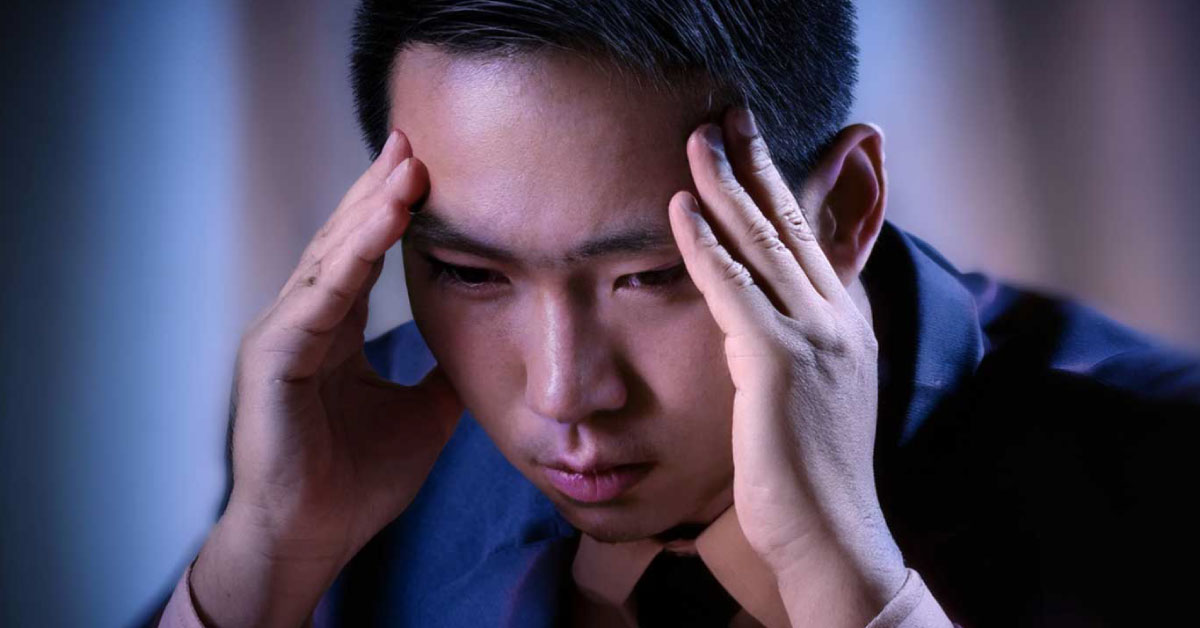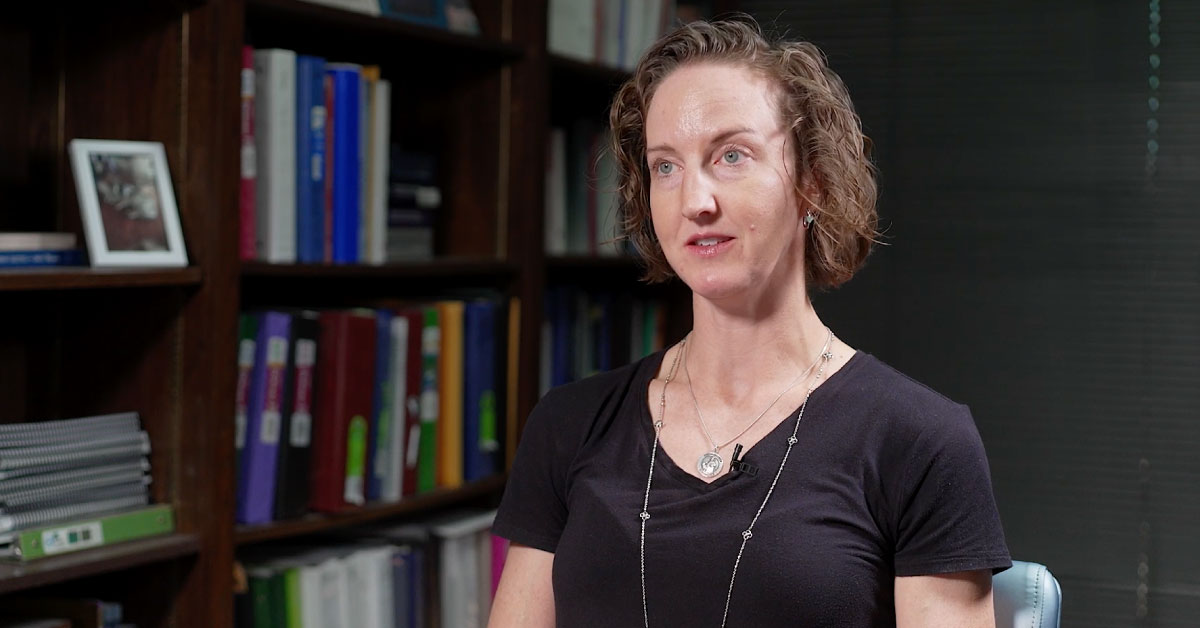Scrolling into Stress: Expert Psychologist Provides Tips on How to Manage Stress
April is Stress Awareness Month

Because of an increasing reliance on smartphones, social media and game-based learning, today’s youth are experiencing unprecedented levels of stress, anxiety and emotional distress. Natalie Scanlon, Ph.D., a clinical psychologist at Texas Tech Physicians, explained that the rapid rise of electronic use has resulted in detrimental effects on mental health. This shift has been particularly prominent in Gen Z and Gen Alpha, marking a stark contrast to the mental health landscape of previous generations.

One of the major contributors to this mental health crisis, Scanlon said, is the comparison-driven nature of social media. Platforms like Instagram, TikTok and YouTube have normalized unrealistic expectations, contributing to feelings of inadequacy and heightened stress levels.
“Social media promotes a constant cycle of comparison,” Scanlon explained. “Youth are exposed to idealized versions of others’ lives, leading to anxiety and even depression.”
The phenomenon of fragmented attention has become a growing concern, according to Scanlon. With the constant barrage of notifications and the dopamine-driven nature of digital platforms, younger generations are increasingly struggling to focus and engage meaningfully with the world around them. Fragmented attention is now linked to addiction-like behaviors, including difficulties with learning, impaired social skills and long-term mental health issues.
Scanlon cited recent research that also has pointed to a rise in physical health concerns, such as sleep disturbances, due to the overuse of electronic devices.
“When young people are unable to sleep properly, their brains don’t have the chance to reset and recharge, leading to dysregulation in other areas of the body, including hormones and neurotransmitters,” Scanlon said. “The key is balance. We need to integrate real-world human connection and mindfulness into our daily routines, even as we engage with technology.”
She noted mental health professionals are increasingly turning to mindfulness practices as a solution to mitigate the harmful effects of excessive screen time. Strategies like deep breathing exercises, body scans and mindful moments throughout the day can offer a respite from the constant barrage of information and the stress it causes.
Scanlon also touched on chronic stress in the workplace. She said by encouraging breaks, promoting wellness initiatives and fostering connection, companies can help reduce stress and increase overall well-being among employees, especially younger generations facing these unique challenges.
Despite technological advancements, Scanlon is calling for a return to simpler forms of interaction, including outdoor play, face-to-face conversations and other offline activities. These human connections allow for true emotional bonding and support, which are increasingly rare in a digitally saturated world.
Scanlon emphasized that by prioritizing real-world connections, mindfulness practices and healthier screen habits, it could help to reduce stress levels and promote better mental health for Gen Z and Gen Alpha.
“As we continue to witness the rise in stress and anxiety disorders in younger generations, it’s clear that a recalibration of our relationship with technology is needed.”
Related Stories
The John Wayne Cancer Foundation Surgical Oncology Fellowship Program at Texas Tech University Health Sciences Center Announced
TTUHSC is collaborating with the John Wayne Cancer Foundation and has established the Big Cure Endowment, which supports the university’s efforts to reduce cancer incidence and increase survivability of people in rural and underserved areas.
Making Mental Health a Priority in the New Year
Sarah Mallard Wakefield, M.D., a psychiatrist with Texas Tech Physicians, talks about strategies to combat widespread and growing anxiety.
TTUHSC Dean to be Inducted into the National Academies of Practice as Distinguished Fellow
Gerard E. Carrino, Ph.D., MPH, dean of the TTUHSC Julia Jones Matthews School of Population and Public Health, will be inducted into the National Academies of Practice (NAP) as a Distinguished Fellow of the Public Health Academy.
Recent Stories
National Academy of Inventors Names TTUHSC Faculty Senior Members
The National Academy of Inventors (NAI) has designated two current and one former TTUHSC faculty researchers as Senior Members.
The John Wayne Cancer Foundation Surgical Oncology Fellowship Program at Texas Tech University Health Sciences Center Announced
TTUHSC is collaborating with the John Wayne Cancer Foundation and has established the Big Cure Endowment, which supports the university’s efforts to reduce cancer incidence and increase survivability of people in rural and underserved areas.
TTUHSC Receives $1 Million Gift from Amarillo National Bank to Expand and Enhance Pediatric Care in the Panhandle
TTUHSC School of Medicine leaders accepted a $1 million philanthropic gift from Amarillo National Bank on Tuesday (Feb. 10), marking a transformational investment in pediatric care for the Texas Panhandle.
